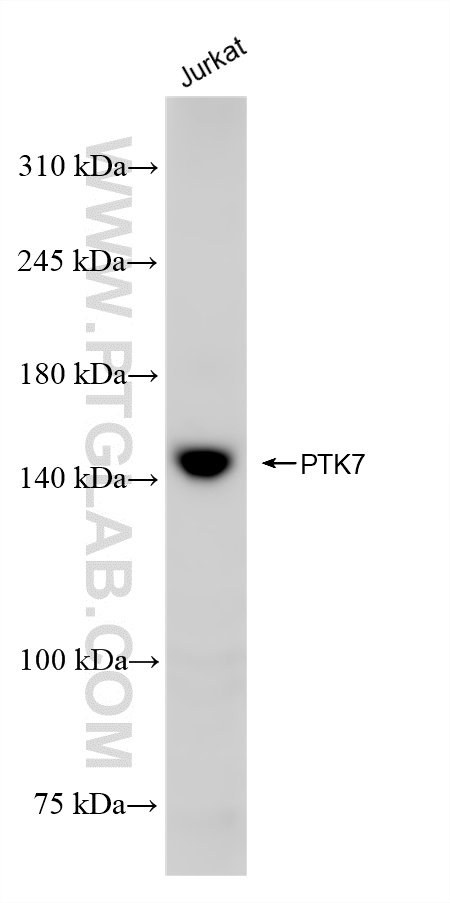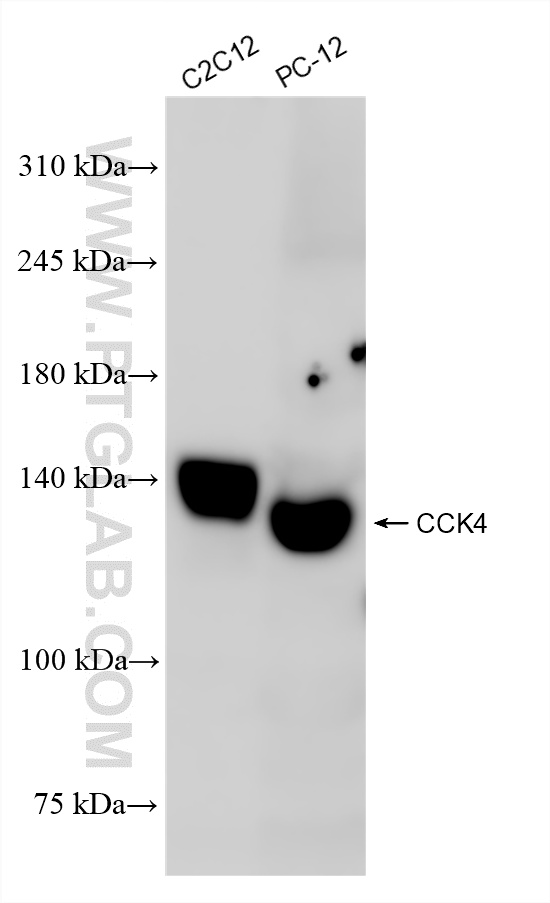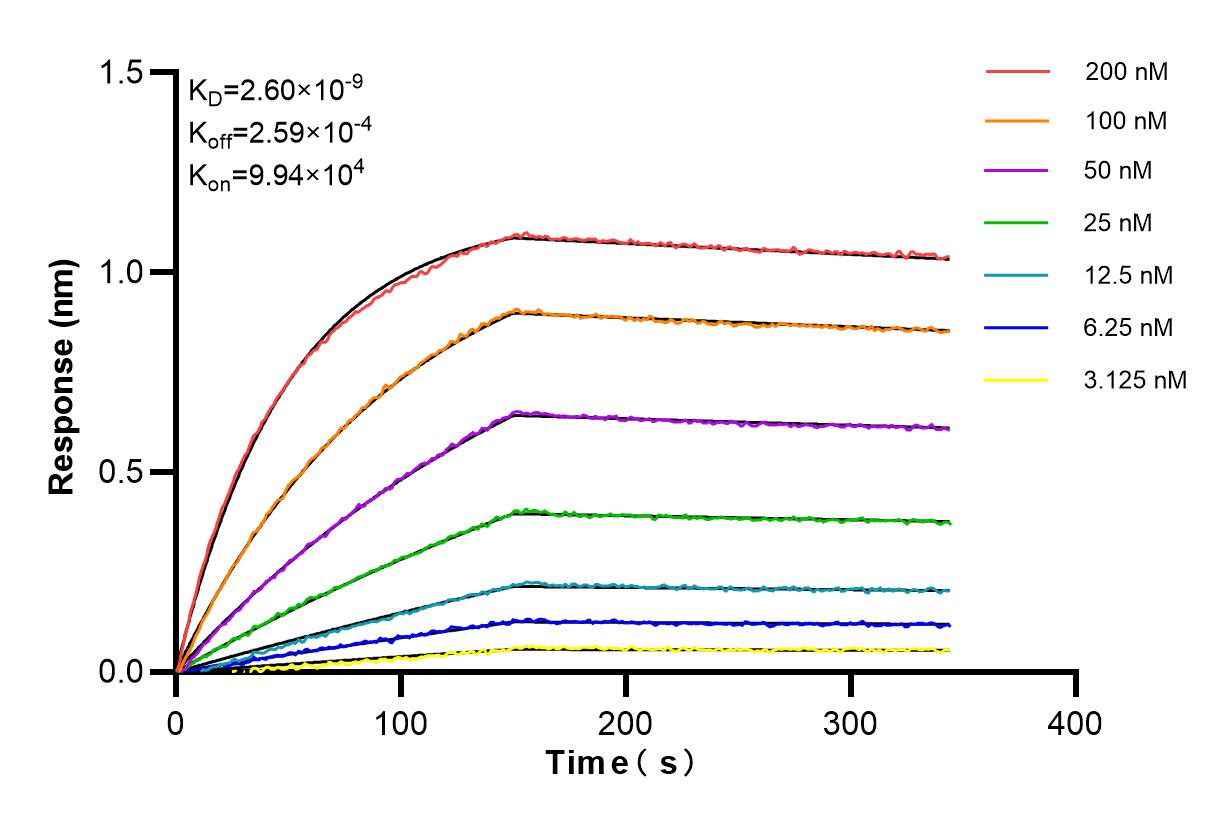验证数据展示
经过测试的应用
| Positive WB detected in | Jurkat cells, C2C12 cells, PC-12 cells |
推荐稀释比
| 应用 | 推荐稀释比 |
|---|---|
| Western Blot (WB) | WB : 1:2000-1:10000 |
| It is recommended that this reagent should be titrated in each testing system to obtain optimal results. | |
| Sample-dependent, Check data in validation data gallery. | |
产品信息
85075-1-RR targets PTK7 in WB, ELISA applications and shows reactivity with human, mouse, rat samples.
| 经测试应用 | WB, ELISA Application Description |
| 经测试反应性 | human, mouse, rat |
| 免疫原 | PTK7 fusion protein Ag12026 种属同源性预测 |
| 宿主/亚型 | Rabbit / IgG |
| 抗体类别 | Recombinant |
| 产品类型 | Antibody |
| 全称 | PTK7 protein tyrosine kinase 7 |
| 别名 | Inactive tyrosine-protein kinase 7, Colon carcinoma kinase 4, CCK-4, CCK4, CCK 4 |
| 计算分子量 | 1070 aa, 118 kDa |
| 观测分子量 | 140 kDa |
| GenBank蛋白编号 | BC071557 |
| 基因名称 | PTK7 |
| Gene ID (NCBI) | 5754 |
| 偶联类型 | Unconjugated |
| 形式 | Liquid |
| 纯化方式 | Protein A purification |
| UNIPROT ID | Q13308 |
| 储存缓冲液 | PBS with 0.02% sodium azide and 50% glycerol , pH 7.3 |
| 储存条件 | Store at -20°C. Stable for one year after shipment. Aliquoting is unnecessary for -20oC storage. |
背景介绍
Protein tyrosine kinase 7 (PTK7), also known as colon carcinoma kinase 4 (CCK4), is an atypical receptor tyrosine kinase that consists of an extracellular domain with seven immunoglobulin-like domains, a transmembrane domain, and a catalytically defective tyrosine kinase domain (PMID: 29867084). It is implicated in planar cell polarity and the Wnt canonical and non-canonical pathways (PMID: 24618420). Overexpression of PTK7 has been reported in a variety of tumors, such as cervical cancer, colon cancer, lung adenocarcinoma, acute myelogenous leukemia, and gastric cancer (PMID: 30944666).
实验方案
| Product Specific Protocols | |
|---|---|
| WB protocol for PTK7 antibody 85075-1-RR | Download protocol |
| Standard Protocols | |
|---|---|
| Click here to view our Standard Protocols |


